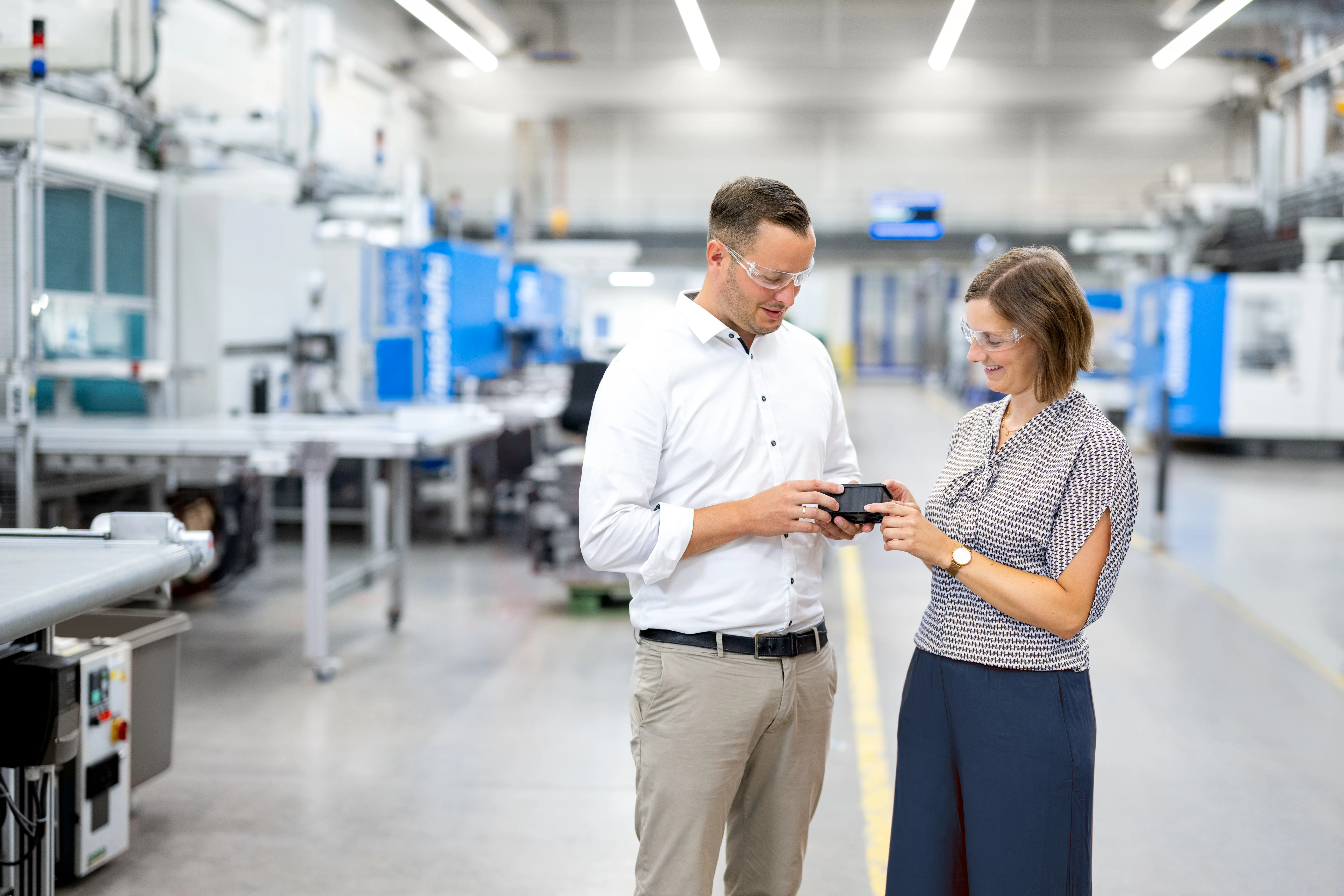From car to car:
Real circular economy in vehicle construction
The automotive industry is facing major challenges: In the future, 25% post-consumer recyclates (PCR) must be used in vehicles, 25% of which must come from end-of-life vehicles, according to the EU Commission's proposal for the ELV*.
Many are looking for solutions – we already have them ready for series production.
Are you ready for the future?
White paper: From old car to new car.
How you can already meet the planned ELV requirements with recycled materials.
What you can expect in the white paper:

We are setting new standards with our component. The add-on console consists of 100% post-consumer recyclate from end-of-life vehicles, which we process in our own compounding facility. This not only shows how we can close the loop, but also how the automotive industry can drastically improve its CO2 balance. Extensive testing ensures that the components meet the industry's stringent requirements. At the same time, we achieve a saving of 71% of greenhouse gas emissions compared to virgin material.

Test your knowledge in our short quiz with 8 questions about the circular economy, eco-design and innovative vehicle components.
Shape the future of the automotive industry with us today.

Post-consumer recyclates (PCR) from used products must be used to meet the requirements of the EU Commission's draft End-of-Life Vehicle Regulation (ELV). The main types of PCR available are polypropylene (PP) and polyethylene (PE) from packaging and PET from drinks bottles. Technical plastics are only available to a limited extent.
Various vehicle components made of PCR are conceivable, especially products outside the passenger compartment in the non-visible area. We already have experience with the use of PCR in holders and protective elements.
The variety of recycled materials is significantly lower than that of virgin material. A PCR is usually a mixture of many different plastic types of one polymer. We specify each recyclate for use in vehicle components and record processing parameters that allow us to simulate the production of the component from the respective recyclate as early as the development phase.
The variety of plastic types within a PCR also determines the mechanical characteristics of the material and the subsequent component. We determine the mechanical parameters for each PCR, which enable us to design the product to meet the requirements of its requirement profile and the expected load.
No primary raw materials are required for the production of recycled materials, meaning that these materials generally have a lower product carbon footprint (PCF) than the comparable virgin material. For our products, the PCF of the PCR variant is usually 30% or more lower than the PCF of the comparable virgin material variant.
You want to know more?
Just fill out the form – afterwards you can
✔ get the whitepaper with additional information
and/or
✔ make an appointment for a personal consultation.